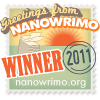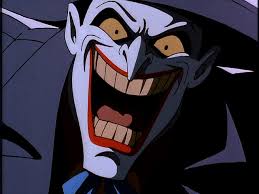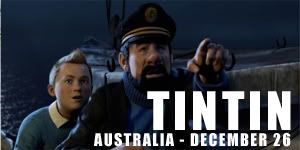Is it possible for writing to be "to wordy"(what makes good writing?)
33 posts •
Page 1 of 2 •
- 1
- 2
Is it possible for writing to be "to wordy"(what makes good writing?)
I've been thinking allot lately, "What makes writing good quality or bad quality"? because I've been constantly hearing people saying that writing I see as fine or even pretty good is trashy and not worth reading. I've also been hearing people say that they think it is stupid if there are lots of adjectives beeing used or if the words are too fancy or long. I've found this very confusing, because I like using adjectives in my writing, and I often search for new, interesting words to use because I late using the same over and over again. But I couldn't help wondering if this maybe annoys people or makes my writing worse.
Hence, the poll. I would really like to know everyones opinion on this ^_^
Hence, the poll. I would really like to know everyones opinion on this ^_^
I Believe in the Sun/Even when It's not shining/I belive in Love/Even When I Don't Feel it/And I Believe in God/Even when He is silent/And I, I Believe ---BarlowGirl
@)}~`,~ Carry This Rose In Your Sig, As Thanks To All The CAA Moderators
DeviantArt◆tumblr◆Beneath The Tangles
Avatar (lovingly) taken from The Silver Eye webcomic
@)}~`,~ Carry This Rose In Your Sig, As Thanks To All The CAA Moderators
DeviantArt◆tumblr◆Beneath The Tangles
Avatar (lovingly) taken from The Silver Eye webcomic
-

Lynna - Posts: 1374
- Joined: Tue Dec 22, 2009 9:38 am
- Location: The Other End of Nowhere...
I believe it's called purple prose, when a writer just starts filling in with too many adjectives and the like. (Correct me if I'm wrong.)
I think that while it's good to be descriptive, you can go way overboard. And you need to use the right adjectives. Like, it's bad to use fancy words in a children's book, and the same with using simple words in a book meant for more advanced readers. It's also bad to use the same words over and over again, but using too many different ones goes back to just appearing to fill in without much substance.
Take Twilight (Yes, I know, but it's a perfect example.). There's too many descriptions and not enough actual substance. And not just too much describing, SMeyer also tends to use as many different words as she can. This leads to a few problems:
It's supposed to be a young adult's novel.
She sometimes uses words in the wrong way, or too much (Chagrin, anyone?).
The point of view is from a girl in high school, not an English major.
It's just plain awkward.
That's just my take. Of course some people might like descriptions more than plot. I like descriptions myself and I love to write them, but I still like it to take back seat to actual substance. In my opinion, if you're going to fill up a book with little else but adjectives, it's probably not going to be the best thing to read.
I think that while it's good to be descriptive, you can go way overboard. And you need to use the right adjectives. Like, it's bad to use fancy words in a children's book, and the same with using simple words in a book meant for more advanced readers. It's also bad to use the same words over and over again, but using too many different ones goes back to just appearing to fill in without much substance.
Take Twilight (Yes, I know, but it's a perfect example.). There's too many descriptions and not enough actual substance. And not just too much describing, SMeyer also tends to use as many different words as she can. This leads to a few problems:
It's supposed to be a young adult's novel.
She sometimes uses words in the wrong way, or too much (Chagrin, anyone?).
The point of view is from a girl in high school, not an English major.
It's just plain awkward.
That's just my take. Of course some people might like descriptions more than plot. I like descriptions myself and I love to write them, but I still like it to take back seat to actual substance. In my opinion, if you're going to fill up a book with little else but adjectives, it's probably not going to be the best thing to read.

-

Ante Bellum - Posts: 1347
- Joined: Tue Apr 07, 2009 2:59 pm
- Location: E U R O B E A T H E L L
I agree that Purple Prose is the bane of a lot of modern writing- and of a lot of writers in the past, too. The problem is that it's really hard to do well. Meyer merely adds it to make sure people know know how gorgeous and sparkly her vampires are and is repetitive with her usage (and has used them the wrong way >.>")
I'd point to Tolkien as a way to do Purple Prose in a good way- his writing may be tedious in some parts, but there's hardly any of it that isn't somewhat important to a scene, no matter how short the scene is. He uses his adjectives judiciously instead of putting them there just to put them there and make his books more wordy.
And I'm totally agreeing that the language used should be of appropriate difficulty for the age level that you're writing for. I mean, most kids in elementary school don't read Tolkien for a reason- the vocabulary is a tad too difficult for them.
I'd point to Tolkien as a way to do Purple Prose in a good way- his writing may be tedious in some parts, but there's hardly any of it that isn't somewhat important to a scene, no matter how short the scene is. He uses his adjectives judiciously instead of putting them there just to put them there and make his books more wordy.
And I'm totally agreeing that the language used should be of appropriate difficulty for the age level that you're writing for. I mean, most kids in elementary school don't read Tolkien for a reason- the vocabulary is a tad too difficult for them.
-

Atria35 - Posts: 6295
- Joined: Sat Mar 20, 2010 7:30 am
Quantity almost never equals quality.
Here are examples of purple prose.
http://www2.localaccess.com/suthed/writing.htm
These may be parodies of purple prose, but they convey the idea. There must be a purpose for every single description in writing. As a general rule, don't go on and on about something unless it's important to the plot.
Other big problems I see are the avoidance of using "said." People will replace "said" with every other modifier under the sun because they think it sounds more sophisticated when in reality it doesn't work most of the time. Sometimes, the modifiers are redundant. Example:
There's also the tendency to fill our sentences with "that." Example:
The sentence reads better like this:
When you really look into how to write smoothly, you find that there's a lot you can cut out, much more than you'd think at first. In fact, that sentence can be cut down a bit more.
This still makes sense because if she's placing the cup there, we know she's holding it. "Sitting" is also unnecessary, since we're already saying that it's beside her bed.
Here are examples of purple prose.
``Ace, watch your head!'' hissed Wanda urgently, yet somehow provocatively, through red, full, sensuous lips, but he couldn't, you know, since nobody can actually watch more than part of his nose or a little cheek or lips if he really tries, but he appreciated her warning.'' From Janice Estey, Aspen, Colo.
http://www2.localaccess.com/suthed/writing.htm
These may be parodies of purple prose, but they convey the idea. There must be a purpose for every single description in writing. As a general rule, don't go on and on about something unless it's important to the plot.
Other big problems I see are the avoidance of using "said." People will replace "said" with every other modifier under the sun because they think it sounds more sophisticated when in reality it doesn't work most of the time. Sometimes, the modifiers are redundant. Example:
"I'm sorry," he apologized.
There's also the tendency to fill our sentences with "that." Example:
She placed the coffee cup that she was holding on top of the table that was sitting beside her bed.
The sentence reads better like this:
She placed the coffee cup she was holding on the table sitting beside her bed.
When you really look into how to write smoothly, you find that there's a lot you can cut out, much more than you'd think at first. In fact, that sentence can be cut down a bit more.
She placed the coffee cup on the table beside her bed.
This still makes sense because if she's placing the cup there, we know she's holding it. "Sitting" is also unnecessary, since we're already saying that it's beside her bed.
Fanfiction (updated 1/1/11)-- Lucky Star--Ginsaki ch. 4
[color="Magenta"]Sometimes I post things.[/color]



[color="Magenta"]Sometimes I post things.[/color]



-

LadyRushia - Posts: 3075
- Joined: Mon Aug 06, 2007 8:38 pm
- Location: In a dorm room/a house.
-

Fish and Chips - Posts: 4415
- Joined: Sat Dec 16, 2006 2:33 pm
- Location: Nowhere.
Thank you for your advice everyone!! I really apppreciate it and I hope it'll help me not make my writing too prose-y (I probably do sometimes)
Twilight: Although I do see that Stephanie Mayers definaitly goes WAY overboard in some places, but There were a lot of places where I thought the writing was quite good, and had a pretty good flow too it.
Instead of avoiding the word "said" constantly, I find it easier to have a miny description as to how they said it, or what they were doing while they said it. It's kind of hard not to go overboard on it sometimes, but it does work a lot of the time.
Any more advice is welcome ^_^
Twilight: Although I do see that Stephanie Mayers definaitly goes WAY overboard in some places, but There were a lot of places where I thought the writing was quite good, and had a pretty good flow too it.
Instead of avoiding the word "said" constantly, I find it easier to have a miny description as to how they said it, or what they were doing while they said it. It's kind of hard not to go overboard on it sometimes, but it does work a lot of the time.
Any more advice is welcome ^_^
I Believe in the Sun/Even when It's not shining/I belive in Love/Even When I Don't Feel it/And I Believe in God/Even when He is silent/And I, I Believe ---BarlowGirl
@)}~`,~ Carry This Rose In Your Sig, As Thanks To All The CAA Moderators
DeviantArt◆tumblr◆Beneath The Tangles
Avatar (lovingly) taken from The Silver Eye webcomic
@)}~`,~ Carry This Rose In Your Sig, As Thanks To All The CAA Moderators
DeviantArt◆tumblr◆Beneath The Tangles
Avatar (lovingly) taken from The Silver Eye webcomic
-

Lynna - Posts: 1374
- Joined: Tue Dec 22, 2009 9:38 am
- Location: The Other End of Nowhere...
LOL, Fish and Chips, and Ich1990.
But they are right, I think. Omit needless words. Adverbs are often unnecessary, and adjectives shouldn't be used to death. Don't say "He walked slowly and silently", say "He crept". Adjectives and adverbs shouldn't be completely abolished, but if you don't need the word, it has to go.
When writing, if you want others to read it, you've got to consider the reader, and the reader doesn't want to slog through a bunch of useless text. (Especially if he/she is a slow reader. *resists the urge to rant* XD) Hunting for long words that make you sound clever is considered bad, too.
Read The Elements of Style by Strunk and White. You will see the light. XD
But they are right, I think. Omit needless words. Adverbs are often unnecessary, and adjectives shouldn't be used to death. Don't say "He walked slowly and silently", say "He crept". Adjectives and adverbs shouldn't be completely abolished, but if you don't need the word, it has to go.
When writing, if you want others to read it, you've got to consider the reader, and the reader doesn't want to slog through a bunch of useless text. (Especially if he/she is a slow reader. *resists the urge to rant* XD) Hunting for long words that make you sound clever is considered bad, too.
Read The Elements of Style by Strunk and White. You will see the light. XD
Hats wrote:"Frodo! Cast off your [s]sins[/s] into the fire!"
EllaEdric 06:53 -IM SO UNEQUIPPED TO BE A MAN ITS NOT EVEN FUNNY.
-

FllMtl Novelist - Posts: 1722
- Joined: Wed May 26, 2010 6:31 pm
- Location: Spa Maria
Frankly, it depends on your style and on what you're writing. For example, you could insert more adjectives into poetry than other genres and it still wouldn't look too bad.
That being said, if you have four adjectives to describe every noun and three adverbs for every action, it would look simply hideous in another genre, especially if what you're writing is supposed to be fast paced and action packed, as in the case of action-adventure, heroic fantasy, etc.,
I myself prefer less description, but that's just my opinion. Someone else may prefer more description, but there does indeed come a point where it looks simply silly.
That being said, if you have four adjectives to describe every noun and three adverbs for every action, it would look simply hideous in another genre, especially if what you're writing is supposed to be fast paced and action packed, as in the case of action-adventure, heroic fantasy, etc.,
I myself prefer less description, but that's just my opinion. Someone else may prefer more description, but there does indeed come a point where it looks simply silly.
"For I am convinced that neither death nor life, neither angels nor demons, neither the present nor the future, nor any powers, neither height nor depth, nor anything else in all creation, will be able to separate us from the love of God that is in Christ Jesus our Lord." [SIZE="2"]Romans 8:38-39 (NIV)[/SIZE]
-

OfficerSting - Posts: 52
- Joined: Fri Apr 16, 2010 7:07 pm
I think that description is only necessary in certain places. If a character just woke up, I might need to know how they felt, what time it was, and things like that. I wouldn't need to know if their curtains were orange or purple, UNLESS it was necessary to the plot. So if you go out of your way to mention, for example, that the curtains were orange, you'd better be setting up for a Chekhov's Gun.
If you're not familiar with that statement, Chekhov's Gun is a literary device which means that if you mention an object or description, it must be used later on, otherwise don't mention it in the first place. Or, as someone paraphrased, "If you say in the first chapter that there is a rifle hanging on the wall, in the second or third chapter it absolutely must go off. If it's not going to be fired, it shouldn't be hanging there."
This isn't necessarily the case; it doesn't HAVE to be fired. But it should be a plot point. If you mention the rifle, maybe it becomes a clue later that the guy used to hunt, or used to be in the military. It should be a thing that factors into the plot. But don't just say "He had a rifle hanging over his fireplace" and then never do anything with that information again. If it isn't needed, don't mention it.
If you're not familiar with that statement, Chekhov's Gun is a literary device which means that if you mention an object or description, it must be used later on, otherwise don't mention it in the first place. Or, as someone paraphrased, "If you say in the first chapter that there is a rifle hanging on the wall, in the second or third chapter it absolutely must go off. If it's not going to be fired, it shouldn't be hanging there."
This isn't necessarily the case; it doesn't HAVE to be fired. But it should be a plot point. If you mention the rifle, maybe it becomes a clue later that the guy used to hunt, or used to be in the military. It should be a thing that factors into the plot. But don't just say "He had a rifle hanging over his fireplace" and then never do anything with that information again. If it isn't needed, don't mention it.

Ezekiel 23:20
-

Nate - Posts: 10725
- Joined: Thu Sep 02, 2004 12:00 pm
- Location: Oh right, like anyone actually cares.
I'm surprised no one has repeated this common piece of writing advice:
Nouns and verbs make stronger writing.
This advice is repeated often because it is true; if you read about writing, or take a class on writing, then you will probably hear it. Try to use more nouns and verbs than adjectives and adverbs; too many adjectives and adverbs will weaken your writing. That's not to say that adjectives are evil and should be avoided at all costs, because adjectives can also be used well.
As for the quantity of description--some people like description more than others, so I think the question of how much is too much is highly subjective. A general rule of thumb is that description should serve some purpose, like what Nate said. Only, I wouldn't go so far as to say that you should never describe anything that doesn't directly tie into the plot. If you take that idea too far, you would end up with your characters wandering around in some vague, undescribed location, and your readers won't be able to picture the setting in which the action is taking place (like Spenser's Faerie Queene, but Spenser can get away with it). The reader does need to have some sense of setting, especially if it's a created world, not present-day wherever-you-live.
Varying your word choice is good, but just make sure you use the word correctly. Sometimes people will search for synonyms in a thesaurus, but the word they choose doesn't really quite match what they are trying to say, and their use of the word is a bit off (or downright incorrect). It's safest to only use words that are already part of your receptive vocabulary and that you have seen in context a few times before. That way you will avoid using words incorrectly]I've been constantly hearing people saying that writing I see as fine or even pretty good is trashy and not worth reading. [/quote]
Here's another frequently-repeated truism:
If you want to write well, read good books.
The more you read, and the more broadly you read, and the more you read good books in particular, the more you will be able to discern what makes writing good or bad. Taste is something that develops over time, not something that you're born with that never changes. After a while, once you've developed a stronger sense of what is good writing and what is bad writing, there will still sometimes be people who disagree with you, but you will at least be able to have a little more confidence in your own opinion of whether or not a book is good.
Seconded.
Nouns and verbs make stronger writing.
This advice is repeated often because it is true; if you read about writing, or take a class on writing, then you will probably hear it. Try to use more nouns and verbs than adjectives and adverbs; too many adjectives and adverbs will weaken your writing. That's not to say that adjectives are evil and should be avoided at all costs, because adjectives can also be used well.
As for the quantity of description--some people like description more than others, so I think the question of how much is too much is highly subjective. A general rule of thumb is that description should serve some purpose, like what Nate said. Only, I wouldn't go so far as to say that you should never describe anything that doesn't directly tie into the plot. If you take that idea too far, you would end up with your characters wandering around in some vague, undescribed location, and your readers won't be able to picture the setting in which the action is taking place (like Spenser's Faerie Queene, but Spenser can get away with it). The reader does need to have some sense of setting, especially if it's a created world, not present-day wherever-you-live.
Lynna wrote:I often search for new, interesting words to use
Varying your word choice is good, but just make sure you use the word correctly. Sometimes people will search for synonyms in a thesaurus, but the word they choose doesn't really quite match what they are trying to say, and their use of the word is a bit off (or downright incorrect). It's safest to only use words that are already part of your receptive vocabulary and that you have seen in context a few times before. That way you will avoid using words incorrectly]I've been constantly hearing people saying that writing I see as fine or even pretty good is trashy and not worth reading. [/quote]
Here's another frequently-repeated truism:
If you want to write well, read good books.
The more you read, and the more broadly you read, and the more you read good books in particular, the more you will be able to discern what makes writing good or bad. Taste is something that develops over time, not something that you're born with that never changes. After a while, once you've developed a stronger sense of what is good writing and what is bad writing, there will still sometimes be people who disagree with you, but you will at least be able to have a little more confidence in your own opinion of whether or not a book is good.
FllMtl Novelist (post: 1411684) wrote:Read The Elements of Style by Strunk and White. You will see the light. XD
Seconded.
Let others believe in the God who brings men to trial and judges them. I shall cling to the God who resurrects the dead.
-St. Nikolai Velimirovich
MAL
-St. Nikolai Velimirovich
MAL
-

Kaori - Posts: 1463
- Joined: Wed Dec 22, 2004 4:48 pm
- Location: 一羽の鳥が弧を描いてゆく
Adjectives are helpful in most cases. They help set an atmosphere, describe a character or scene, and give the reader a mental image of what you're talking about. However, if you have too many, the reader loses track of what you were even talking about, and they have to backtrack to find the noun. Having to diagram a sentence to figure out what the noun and verb are is never fun. Too many adjectives are never good, but there's not really a set rule for how many adjectives per sentence there needs to be. It depends on the part of the scene you're writing and your writing style. In action scenes, I like to keep the sentences shorter, so they move quickly from one to another to set the pace. However, when describing characters or scenes that help set the tone of the story, I like to be more detailed.
Really though, Karoi mentioned a great way to learn what good writing is-- reading it. Read lots and lots of what is widely considered great literature, and analyze it. Also, when you're done writing a scene, go back and read it out loud. When you read it out loud, it's easier to find mistakes. And if you have to take a breath in the middle of a sentence, chances are that you have too many adjectives.
Also, Elements of Style. Will it make you despair of ever being a good writer? Certainly. Should you read it? Absolutely.
Really though, Karoi mentioned a great way to learn what good writing is-- reading it. Read lots and lots of what is widely considered great literature, and analyze it. Also, when you're done writing a scene, go back and read it out loud. When you read it out loud, it's easier to find mistakes. And if you have to take a breath in the middle of a sentence, chances are that you have too many adjectives.
Also, Elements of Style. Will it make you despair of ever being a good writer? Certainly. Should you read it? Absolutely.
MAL
What call have I to dream of anything?
I am a wolf. Back to the world again,
And speech of fellow-brutes that once were men
Our throats can bark for slaughter: cannot sing.
-C.S. Lewis
What call have I to dream of anything?
I am a wolf. Back to the world again,
And speech of fellow-brutes that once were men
Our throats can bark for slaughter: cannot sing.
-C.S. Lewis
-

shade of dae - Posts: 154
- Joined: Tue Apr 17, 2007 8:36 am
- Location: currently connected to the wired...
Always keep a thesaurus handy. They work immensely well.
"Before I formed you in the womb I knew you, and before you were born I consecrated you. I appointed you to be a prophet of all nations."
--Jeremiah 1:5

Hit me up on social media!
https://www.facebook.com/profile.php?id=100007205508246<--Facebook
I'm also on Amino as Radical Edward, and on Reddit as Rocklobster as well.
click here for my playlist!
my last fm profile!
--Jeremiah 1:5
Hit me up on social media!
https://www.facebook.com/profile.php?id=100007205508246<--Facebook
I'm also on Amino as Radical Edward, and on Reddit as Rocklobster as well.
click here for my playlist!
my last fm profile!
-

rocklobster - Posts: 8903
- Joined: Mon Dec 20, 2004 1:27 pm
- Location: Planet Claire
Don't use a Thesaurus unless you have a dictionary on hand. Look up every word before you use it, and don't only consider the dictionary definition; consider what most people think the word means, what it sounds like, and whether it feels natural. A pretty word used correctly is not enough, it has to be the right word.
~~~~~~~~~~~
[color="DeepSkyBlue"][font="Book Antiqua"]"I love to be alone. I never found the companion that was so companionable as solitude. We are for the most part more lonely when we go abroad among men than when we stay in our chambers. A man thinking or working is always alone, let him be where he will."-- Henry David Thoreau, Walden[/font][/color]
[color="Pink"]TGJesusfreak: Is the chatroom gonna self destruct or somethin?
Chatbot: Yes[/color]
[color="RoyalBlue"]@)[/color][color="SeaGreen"]}~`,~[/color] [color="PaleGreen"]Carry This Rose In Your Sig, As Thanks, To All The CAA Moderators.[/color]
[color="DeepSkyBlue"][font="Book Antiqua"]"I love to be alone. I never found the companion that was so companionable as solitude. We are for the most part more lonely when we go abroad among men than when we stay in our chambers. A man thinking or working is always alone, let him be where he will."-- Henry David Thoreau, Walden[/font][/color]
[color="Pink"]TGJesusfreak: Is the chatroom gonna self destruct or somethin?
Chatbot: Yes[/color]
[color="RoyalBlue"]@)[/color][color="SeaGreen"]}~`,~[/color] [color="PaleGreen"]Carry This Rose In Your Sig, As Thanks, To All The CAA Moderators.[/color]
-

Wikiwalker - Posts: 80
- Joined: Sun Jan 17, 2010 2:28 pm
- Location: In a very, very cold place, unfortunately
)
I do the same thing!!
One of my recommendations is don't just tell the reader what is happening, show them (through the character's words and actions)!! I hate it when authors write, "She was a nice and kind person." As my friend says, that doesn't tell us anything! (My friend usually goes on to say something sarcastic like, "Well, that was descriptive.")
I hate it when authors write, "She was a nice and kind person." As my friend says, that doesn't tell us anything! (My friend usually goes on to say something sarcastic like, "Well, that was descriptive.")
Lynna (post: 1411682) wrote:Instead of avoiding the word "said" constantly, I find it easier to have a miny description as to how they said it, or what they were doing while they said it. It's kind of hard not to go overboard on it sometimes, but it does work a lot of the time.
Any more advice is welcome ^_^
I do the same thing!!
One of my recommendations is don't just tell the reader what is happening, show them (through the character's words and actions)!!
 I hate it when authors write, "She was a nice and kind person." As my friend says, that doesn't tell us anything! (My friend usually goes on to say something sarcastic like, "Well, that was descriptive.")
I hate it when authors write, "She was a nice and kind person." As my friend says, that doesn't tell us anything! (My friend usually goes on to say something sarcastic like, "Well, that was descriptive.")[font="Comic Sans MS"]"You can't get a cup of tea big enough or a book long enough to suit me."
-C. S. Lewis[/font]
"MOES: Sig. Or sig not. There is no scroll."
According to EllaEdric, my real name is.... "TAMAMAMAMAAMMAAM".
[font="Courier New"]
I love my flute![/font]
[SIGPIC][/SIGPIC]
-C. S. Lewis[/font]
"MOES: Sig. Or sig not. There is no scroll."
According to EllaEdric, my real name is.... "TAMAMAMAMAAMMAAM".
[font="Courier New"]
I love my flute![/font]
[SIGPIC][/SIGPIC]
-

Tamachan319 - Posts: 161
- Joined: Tue Jul 06, 2010 8:15 pm
- Location: Someplace, somewhere. I'm specific about these things, you see.
Tama is absolutely correct. SHOW, DON'T TELL. If you're writing, don't just say "Mr. Harrison was a mean person." That isn't very good. However, what you could do is write a descriptive paragraph where Mr. Harrison is driving and purposely drives into a puddle to splash someone on the sidewalk, then laughs about it while he speeds away. That is the better choice. So again, show, don't tell.

Ezekiel 23:20
-

Nate - Posts: 10725
- Joined: Thu Sep 02, 2004 12:00 pm
- Location: Oh right, like anyone actually cares.
Ouch. I am the only one who loves adjectives.
...you must begin a reading program immediately so that you may understand the crises of our age... Begin with the late Romans, including Boethius, of course. Then you should dip rather extensively into early Medieval. You may skip the Renaissance and the Enlightenment. That is mostly dangerous propaganda. Now that I think of it, you had better skip the Romantics and the Victorians too. For the contemporary period, you should study some selected comic books.
-Ignatius J. Reilly, in John Kennedy Toole's A Confederacy of Dunces, 1960s
@)}~`,~ Carry This Rose In Your Sig, As Thanks, To All The CAA Moderators.
-Ignatius J. Reilly, in John Kennedy Toole's A Confederacy of Dunces, 1960s
@)}~`,~ Carry This Rose In Your Sig, As Thanks, To All The CAA Moderators.
-

crusader88 - Posts: 75
- Joined: Fri Jun 19, 2009 4:19 pm
- Location: Little Monica
I have found that trying to come up with a descriptive noun or verb for everything is cumbersome and unnatural. I make good use of adjectives and adverbs because it is a waste of time trying to redo all the nouns and verbs, particularly when most of those words aren't used in conversation... ever.
I have been advised by English teachers to avoid overusing descriptive nouns and verbs, in fact. It can reach a point where it looks like the story was written by a thesaurus rather than a person.
http://www.sfwa.org/2005/01/writerisms-and-other-sins-a-writers-shortcut-to-stronger-writing/
This site basically says both. Don't overuse "colorless verbs" and don't overuse "colorful verbs" among other things. It's amazing how much contrary advice there is, however. It all comes down to style and the conventions of your genre (not that violating those doesn't have its place, as well)
My writing tends toward the overusing of colorless nouns / verbs, and also I never use whom (it can be eliminated the same way that thee / thy / thou / thine / ye have been eliminated). There is also #11... I don't know how often I've used that, but I never heard of a complaint about it until tonight.
I have been advised by English teachers to avoid overusing descriptive nouns and verbs, in fact. It can reach a point where it looks like the story was written by a thesaurus rather than a person.
http://www.sfwa.org/2005/01/writerisms-and-other-sins-a-writers-shortcut-to-stronger-writing/
This site basically says both. Don't overuse "colorless verbs" and don't overuse "colorful verbs" among other things. It's amazing how much contrary advice there is, however. It all comes down to style and the conventions of your genre (not that violating those doesn't have its place, as well)
My writing tends toward the overusing of colorless nouns / verbs, and also I never use whom (it can be eliminated the same way that thee / thy / thou / thine / ye have been eliminated). There is also #11... I don't know how often I've used that, but I never heard of a complaint about it until tonight.
https://www.youtube.com/watch?v=evcNPfZlrZs Watch this movie なう。 It's legal, free... And it's more than its premise. It's not saying Fast Food is good food. Just watch it.
Legend of Crying Bronies: Twilight's a Princess

Legend of Crying Bronies: Twilight's a Princess

-

Bobtheduck - Posts: 5867
- Joined: Mon Aug 25, 2003 9:00 am
- Location: Japan, currently. Gonna be Idaho, soon.
@ BobtheDuck cool site! pretty useful, although I don't understand why it's so wrong to describe a character. Once I read a story my friend wrote, and got really annoyed because I couldn't picture the characters at all, because there wasn't any description of them. I mean, I can see why some people might prefer not to have the character described but...yeah.
I Believe in the Sun/Even when It's not shining/I belive in Love/Even When I Don't Feel it/And I Believe in God/Even when He is silent/And I, I Believe ---BarlowGirl
@)}~`,~ Carry This Rose In Your Sig, As Thanks To All The CAA Moderators
DeviantArt◆tumblr◆Beneath The Tangles
Avatar (lovingly) taken from The Silver Eye webcomic
@)}~`,~ Carry This Rose In Your Sig, As Thanks To All The CAA Moderators
DeviantArt◆tumblr◆Beneath The Tangles
Avatar (lovingly) taken from The Silver Eye webcomic
-

Lynna - Posts: 1374
- Joined: Tue Dec 22, 2009 9:38 am
- Location: The Other End of Nowhere...
Sometimes pausing to describe a character or whatever in detail can interrupt the flow of a story. If you're writing an action scene or some other kind of scene that's fast paced, my thought is that if the characters don't have time to be noting every little thing about themselves or about whatever's around them, then neither do you. If a story starts out with a scene like that, then describing things once the characters are out of danger might feel more natural. That's something I'm experimenting with in one of my stories, but I'm not sure how well it works.
Fanfiction (updated 1/1/11)-- Lucky Star--Ginsaki ch. 4
[color="Magenta"]Sometimes I post things.[/color]



[color="Magenta"]Sometimes I post things.[/color]



-

LadyRushia - Posts: 3075
- Joined: Mon Aug 06, 2007 8:38 pm
- Location: In a dorm room/a house.
Lynna wrote:I don't understand why it's so wrong to describe a character.
There's a couple of reasons why. One, because everyone is going to see a character differently, and you want to be able to accommodate for that. But actually, there's a bigger reason.
That reason is because you can manipulate the reader's feelings too easily with description. Let's see if I can find an example.
"He had a small, petulant mouth, and thin hair clinging to a bald forehead. His posture had a limp, decentralized sloppiness, as if in defiance of his tall, slender body, a body with an elegance of line intended for the confident poise of an aristocrat, but transformed into the gawkiness of a lout. The flesh of his face was pale and soft. His eyes were pale and veiled, with a glance that moved slowly, never quite stopping, gliding off and past things in eternal resentment of their existence. He looked obstinate and drained. He was thirty-nine years old."
In other words, the description here is to say "THIS PERSON IS BAD AND YOU SHOULDN'T LIKE THIS PERSON BECAUSE DID YOU SEE HOW I DESCRIBED HIM MAN HE SURE LOOKS BAD AND BAD PEOPLE ALWAYS LOOK BAD."
Contrasted with, from a few pages later of the same book,
"Her leg, sculptured by the tight sheen of the stocking, its long line running straight, over an arched instep, to the tip of a foot in a high-heeled pump, had a feminine elegance that seemed out of place in the dusty train car and oddly incongruous with the rest of her. She wore a battered camel’s hair coat that had been expensive, wrapped shapelessly about her slender, nervous body. The coat collar was raised to the slanting brim of her hat. A sweep of brown hair fell back, almost touching the line of her shoulders. Her face was made of angular planes, the shape of her mouth clear-cut, a sensual mouth held closed with inflexible precision."
HEY THIS IS A GOOD PERSON DID YOU SEE HOW ATTRACTIVE THEY ARE BECAUSE GOOD PEOPLE ARE ALWAYS GOOD-LOOKING DID YOU NOTICE THAT.
This is why description can be bad, because it's tempting to give attractive characteristics to good characters and unattractive ones to bad characters. It's poor writing. I don't think they're saying not to tell us the person's hair color or skin tone, just don't go overboard describing their features or body unless it's necessary to the plot. Let the reader decide what the person looks like, and in this way you can also avoid purposely manipulating the reader as to how you want them to feel about a character. Let them decide which characters they like or dislike.

Ezekiel 23:20
-

Nate - Posts: 10725
- Joined: Thu Sep 02, 2004 12:00 pm
- Location: Oh right, like anyone actually cares.
Information dumps also stall the story. That in-itself is never a good sign. Describe the character through their unique body-language and dialogue rather than having them gaze into a mirror to examine their appearance. It takes some time to get it right but the effort is so very worth it!
-

Warrior 4 Jesus - Posts: 4844
- Joined: Tue Sep 07, 2004 10:52 pm
- Location: The driest continent that isn't Antarctica.
I have to admit, it bugged me in Harry Potter when the slytherins and most bad guys got described as looking ugly.
What I took from it, though, was we were looking at everything essentially through Harry's Eyes, and saw the exaggerations he created. I wanted to do something similar in my second book, but show the same scene or characters through more than one set of eyes. Someone who looked ugly in one could look comforting in another, one who looked haughty in one could look strong in another... That sort of thing.
That site I linked to has a great quote, though, about rules: "No rule should be followed off a cliff." Breaking the rules is fine to an extent in fiction, even if your publishers don't quite get that.
What I took from it, though, was we were looking at everything essentially through Harry's Eyes, and saw the exaggerations he created. I wanted to do something similar in my second book, but show the same scene or characters through more than one set of eyes. Someone who looked ugly in one could look comforting in another, one who looked haughty in one could look strong in another... That sort of thing.
That site I linked to has a great quote, though, about rules: "No rule should be followed off a cliff." Breaking the rules is fine to an extent in fiction, even if your publishers don't quite get that.
https://www.youtube.com/watch?v=evcNPfZlrZs Watch this movie なう。 It's legal, free... And it's more than its premise. It's not saying Fast Food is good food. Just watch it.
Legend of Crying Bronies: Twilight's a Princess

Legend of Crying Bronies: Twilight's a Princess

-

Bobtheduck - Posts: 5867
- Joined: Mon Aug 25, 2003 9:00 am
- Location: Japan, currently. Gonna be Idaho, soon.
Adjectives are good when it comes to describing a setting, but too many just keeps the description going on for too long. It *can* get a bit wordy then. But still, not having enough adjectives isn't exactly good either.
This is how I (personally) see good, over, and under use of adjectives... (and yes, I did come up with these sentences just now XD)
Good: The gray, patched clouds loomed over while the cold rain rushed down my window. (Very descriptive and good enough to get a picture of what the author is attempting to describe)
Over: The gigantic, patched clouds were a dark and horrible shade of gray while the cold, frozen rain slowly inched down my glass window. (Very descriptive, but way too many words that state the obvious and take too much time to read)
Under: The clouds were outside and the rain came down my window. (It's easy to speed through, but not very descriptive, so it's harder to imagine what the reader is trying to imply)
These are just my opinions, though. ^_^
This is how I (personally) see good, over, and under use of adjectives... (and yes, I did come up with these sentences just now XD)
Good: The gray, patched clouds loomed over while the cold rain rushed down my window. (Very descriptive and good enough to get a picture of what the author is attempting to describe)
Over: The gigantic, patched clouds were a dark and horrible shade of gray while the cold, frozen rain slowly inched down my glass window. (Very descriptive, but way too many words that state the obvious and take too much time to read)
Under: The clouds were outside and the rain came down my window. (It's easy to speed through, but not very descriptive, so it's harder to imagine what the reader is trying to imply)
These are just my opinions, though. ^_^
-Sno
-

mysngoeshere56 - Posts: 1245
- Joined: Sun Apr 27, 2008 5:42 pm
- Location: My heart and my body live in two different places.
Fixed: The grey, patched clouds loomed overhead while the ice-cold rain cascaded down my window.
You're saying something different in the first and second examples. Rain rushing down your window is entirely different to rain inching down your window. Which one do you want? Is the rain violent or not?
You're saying something different in the first and second examples. Rain rushing down your window is entirely different to rain inching down your window. Which one do you want? Is the rain violent or not?
-

Warrior 4 Jesus - Posts: 4844
- Joined: Tue Sep 07, 2004 10:52 pm
- Location: The driest continent that isn't Antarctica.
Wasn't meaning to be that technical with my sentences, just giving example. Sorry if I confused you. I wasn't feel so great (physically) while I was typing that. >_< But, my main point was what I said: adjectives are good, but there is such a thing as "too many".
-Sno
-

mysngoeshere56 - Posts: 1245
- Joined: Sun Apr 27, 2008 5:42 pm
- Location: My heart and my body live in two different places.
Okay, no worries. I hope you feel better soon. Yes, adjectives should be used sparingly, use strong nouns and verbs in their place. Sorry if I came across harshly with you.
-

Warrior 4 Jesus - Posts: 4844
- Joined: Tue Sep 07, 2004 10:52 pm
- Location: The driest continent that isn't Antarctica.
Inexperienced authors often make weak sentences by overusing adverbs and adjectives, but I don't really like the way a lot of writers/books seem to be saying that ALL ADJECTIVES/ADVERBS ARE BAD ALL THE TIME. I find that using hardly any modifying words at all elicits a very cold, detached feeling to the story. Some stories require that and thrive in a sparse style, but some need a warmer, more familiar feel to them.
Also, I don't like how lots of people seem to discredit older authors simply because they're more verbose than more modern authors. Sometimes their writing can drag unnecessarily, but a lot of times their writing is beautiful because of the length and word choice. I suspect that's partly because they knew how to write like that, because people talked more like that in their everyday conversation. Our modern sentences tend to be so short and clipped, so when we try to write like that, we fail epically -_-
What I've found helpful is to cut back a lot on adjectives/adverbs while I'm still an amateur writer, yet as time goes on and I read and write more, I slowly learn where they're necessary and where they're not. It's similar with me and commas. I use to use them everywhere, and the comma is still one of my favorite punctuation marks (though I've become fonder of semicolons lately). Then one time I read over something I'd written and realized that I had way too many commas. I focused hard after that on only putting in commas where they were necessary. Now I hardly even worry about it anymore, because I've got a much better handle on how the written language works.
Oh, and as for character descriptions, I've found that it often works best to scatter the details about the character throughout the story, rather than info-dumping them all at the beginning or wherever. That way the reader can become acquainted with the character's personality and mannerisms at the same time as their physical appearance.
Also, I don't like how lots of people seem to discredit older authors simply because they're more verbose than more modern authors. Sometimes their writing can drag unnecessarily, but a lot of times their writing is beautiful because of the length and word choice. I suspect that's partly because they knew how to write like that, because people talked more like that in their everyday conversation. Our modern sentences tend to be so short and clipped, so when we try to write like that, we fail epically -_-
What I've found helpful is to cut back a lot on adjectives/adverbs while I'm still an amateur writer, yet as time goes on and I read and write more, I slowly learn where they're necessary and where they're not. It's similar with me and commas. I use to use them everywhere, and the comma is still one of my favorite punctuation marks (though I've become fonder of semicolons lately). Then one time I read over something I'd written and realized that I had way too many commas. I focused hard after that on only putting in commas where they were necessary. Now I hardly even worry about it anymore, because I've got a much better handle on how the written language works.
Oh, and as for character descriptions, I've found that it often works best to scatter the details about the character throughout the story, rather than info-dumping them all at the beginning or wherever. That way the reader can become acquainted with the character's personality and mannerisms at the same time as their physical appearance.
You can find out things about the past that you never knew. And from what you've learned, you may see some things differently in the present. You're the one that changes. Not the past.
- Ellone, Final Fantasy VIII

"There's a difference between maliciously offending somebody - on purpose - and somebody being offended by...truth. If you're offended by the truth, that's your problem. I have no obligation to not offend you if I'm speaking the truth. The truth is supposed to offend you; that's how you know you don't got it."
- Brad Stine
- Ellone, Final Fantasy VIII

"There's a difference between maliciously offending somebody - on purpose - and somebody being offended by...truth. If you're offended by the truth, that's your problem. I have no obligation to not offend you if I'm speaking the truth. The truth is supposed to offend you; that's how you know you don't got it."
- Brad Stine
-

the_wolfs_howl - Posts: 3273
- Joined: Thu Mar 01, 2007 11:26 pm
- Location: Not Paradise...yet
the_wolfs_howl (post: 1413329) wrote:Oh, and as for character descriptions, I've found that it often works best to scatter the details about the character throughout the story, rather than info-dumping them all at the beginning or wherever. That way the reader can become acquainted with the character's personality and mannerisms at the same time as their physical appearance.
Yes, I've discovered the same thing myself. Having an entire paragraph describing one of my characters always seemed out of place for me, so I pretty much learned that it's best (for me, anyway) to simply keep in mind what they look like to me and gradually reveal it as the story goes on.
-Sno
-

mysngoeshere56 - Posts: 1245
- Joined: Sun Apr 27, 2008 5:42 pm
- Location: My heart and my body live in two different places.
Kaori (post: 1411702) wrote:
...As for the quantity of description--some people like description more than others, so I think the question of how much is too much is highly subjective. A general rule of thumb is that description should serve some purpose, like what Nate said. Only, I wouldn't go so far as to say that you should never describe anything that doesn't directly tie into the plot. If you take that idea too far, you would end up with your characters wandering around in some vague, undescribed location, and your readers won't be able to picture the setting in which the action is taking place (like Spenser's Faerie Queene, but Spenser can get away with it). The reader does need to have some sense of setting, especially if it's a created world, not present-day wherever-you-live.
...
Here's another frequently-repeated truism:
If you want to write well, read good books.
The more you read, and the more broadly you read, and the more you read good books in particular, the more you will be able to discern what makes writing good or bad. Taste is something that develops over time, not something that you're born with that never changes. After a while, once you've developed a stronger sense of what is good writing and what is bad writing, there will still sometimes be people who disagree with you, but you will at least be able to have a little more confidence in your own opinion of whether or not a book is good....
Applause! Excellent response! I'm going back to your comment when I have writers block!
the_wolfs_howl: I absolutely agree!
Lynna (post: 1412539) wrote:@ BobtheDuck cool site! pretty useful, although I don't understand why it's so wrong to describe a character. Once I read a story my friend wrote, and got really annoyed because I couldn't picture the characters at all, because there wasn't any description of them. I mean, I can see why some people might prefer not to have the character described but...yeah.
I think you're annoyance is justifiable. I haven't read your friends' story so I can only assume that she/he could have done one of two things.
1) The entire story was talking heads with no explicit description of how x-character looks like.
and
2) The story never had an explicit description of how character-x looks like, but the word choice used for that character or scene was specific to the character(s) personalit(ies) and purpose in the story.
For example:
- Tell: "Dan didn't want to look at me after my friend said he had puppy dog eyes."
vs.
- Show: "My friend sniggered when he did not reply. Dan's large gray eyes widened before glancing away, his good hand quick to scribble doodles on his notebook."
As you can see in my "Show" version of the idea, I implied a lot of things that I didn't even have in my first sentence. I implied that my friend is a bit of a snob, that Dan is shy and that he might be embarrassed about his puppy dog eyes hence conveying the idea that "Dan didn't want to look at me." And maybe that he has a developmental disability/injury (good hand implies he has a bad hand) See, and that wasn't a laundry list of a description like:
Dan had big gray puppy dog eyes and black hair which I liked, but he also had a gimp in his right arm and his left hand was pretty bad at writing too. His shoes were oversize all the time and I didn't know if it was because his feet were too big for his body or if his mother wanted to permanently keep him uncool.
So my point is that you can use description, just make sure it contributes to moving the plot forward like I just (tried to) demonstrate. Tell me what you think about that advice eh?
-

Adorima - Posts: 123
- Joined: Tue Oct 16, 2007 9:32 pm
- Location: USA
33 posts •
Page 1 of 2 •
- 1
- 2
Who is online
Users browsing this forum: No registered users and 21 guests


